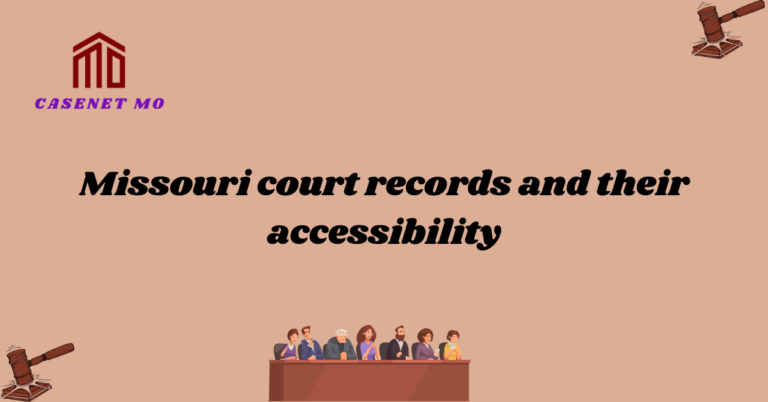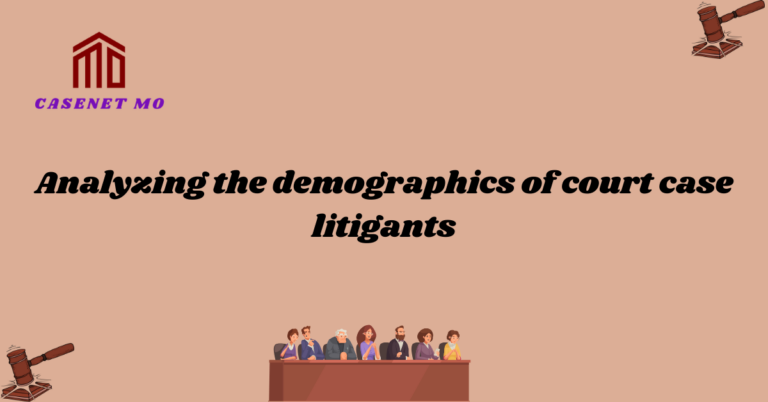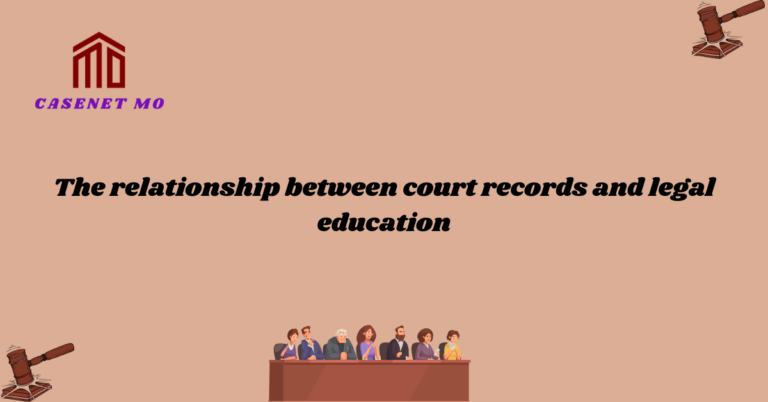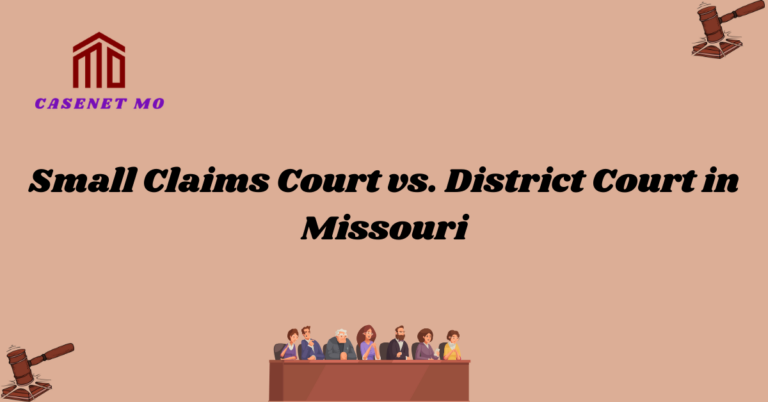Scheduled Hearings and Trials Guide in Missouri
In the vibrant state of Missouri, the legal system is a cornerstone of our society. From civil disputes to criminal trials, the courts play a crucial role in upholding justice and resolving conflicts. Whether you are a lawyer, a defendant, a witness, or simply a curious citizen, understanding the intricacies of the legal process can be daunting. That’s why we are here to guide you through the scheduled hearings and trials in Missouri.
Missouri boasts a robust legal system with a wide range of courts, each with its own jurisdiction and purpose. From the Supreme Court, which serves as the highest authority in the state, to the Circuit Courts that handle both civil and criminal cases, there is a rich tapestry of judicial proceedings taking place every day. Navigating this complex web of hearings and trials can be overwhelming, but fear not, for we are here to shed light on the process.
Understanding the Legal Landscape of Missouri
Missouri is a state with a vibrant legal system that serves as the backbone of our society. From civil disputes to criminal trials, the courts in Missouri play a crucial role in upholding justice and resolving conflicts. Whether you are a lawyer, a defendant, a witness, or simply a curious citizen, understanding the intricacies of the legal process can be daunting. In this comprehensive guide, we aim to shed light on the scheduled hearings and trials in Missouri, providing valuable insights into the legal landscape of our great state.
The Types of Courts in Missouri
Missouri boasts a robust legal system with a wide range of courts, each with its own jurisdiction and purpose. At the pinnacle of the state’s judicial hierarchy is the Supreme Court, which serves as the highest authority in Missouri. The Supreme Court is responsible for reviewing decisions made by lower courts, ensuring that justice is upheld and legal principles are applied correctly.
Below the Supreme Court, we have the Court of Appeals, which is divided into three districts: Eastern, Western, and Southern. The Court of Appeals reviews decisions made by trial courts and provides clarification on legal matters. It acts as an intermediate appellate court, ensuring that cases are handled properly before they potentially move on to the Supreme Court.
At the trial court level, we have the Circuit Courts, which are the primary courts in Missouri. These courts have both civil and criminal jurisdiction, handling a wide range of cases. The Circuit Courts are divided into 45 judicial circuits, each covering a specific geographic area within the state. They are responsible for conducting trials, hearing motions, and resolving disputes.
The Role of Judges, Attorneys, and Jury Members
Within the Missouri legal system, various individuals play crucial roles in ensuring the fair and just resolution of cases. Judges are responsible for presiding over hearings and trials, applying the law, and ensuring that the legal process is conducted in a fair and unbiased manner. They interpret the law, make crucial decisions, and guide the proceedings to ensure justice is served.
Attorneys, on the other hand, represent the interests of their clients and advocate for them in court. They are responsible for presenting evidence, cross-examining witnesses, and making legal arguments. Attorneys possess an in-depth understanding of the law and use their expertise to navigate the legal process effectively.
Jury members also play a vital role in the Missouri legal system. In certain cases, a jury is selected to hear the evidence presented and make a decision based on the facts and the law. Jury members are chosen from the community and are responsible for impartially evaluating the evidence presented in court.
The Process of Scheduled Hearings and Trials
Now that we have a basic understanding of the courts and the key individuals involved, let’s take a closer look at the process of scheduled hearings and trials in Missouri. The legal process typically begins when a case is filed with the appropriate court. The court then assigns a judge who will oversee the case and ensure it progresses through the necessary stages.
Once a case is scheduled for a hearing or trial, various procedures come into play. The specific procedures may vary depending on the type of case and the court involved. It is essential to understand the different stages and the purpose they serve in the overall legal process.
During a hearing, the parties involved present their arguments, evidence, and legal positions to the judge. The judge listens to the arguments, asks questions, and may make immediate rulings on certain matters. Hearings are typically shorter in duration compared to trials and are focused on specific issues within a case.
Trials, on the other hand, are more comprehensive proceedings that involve presenting evidence, examining witnesses, and making legal arguments. Trials can be conducted with or without a jury, depending on the type of case and the preference of the parties involved. They provide a platform for the parties to present their cases and seek a resolution.
Understanding the Legal Process in Detail
Now that we have a general understanding of the courts and the process of scheduled hearings and trials, let’s delve deeper into the various stages and procedures involved. It is crucial to have a comprehensive understanding of the legal process to navigate it effectively and ensure the best possible outcome for your case.
Pre-Trial Stage
The pre-trial stage encompasses all the activities that occur before a case goes to trial. This stage involves various steps, including pleading, discovery, and motion practice. Pleading refers to the filing of documents that state the claims and defences of the parties involved. The plaintiff files a complaint, while the defendant responds with an answer or a motion to dismiss.
Discovery is the process through which the parties gather evidence and information to support their claims or defences. This can involve requests for documents, interrogatories (written questions), depositions (oral testimony under oath), and other methods of obtaining information. Discovery is a crucial stage that allows the parties to gather evidence and build their cases.
Motion practice involves the filing of legal motions to address specific issues within a case. Motions can seek various outcomes, such as the dismissal of a case, the exclusion of evidence, or the resolution of a legal question. Motions are typically supported by legal arguments and require the judge’s consideration and ruling.
Trial Stage
Once the pre-trial stage is complete, the case moves into the trial stage. Trials are complex proceedings that involve numerous steps and require careful preparation. Both parties present their cases, examining witnesses, presenting evidence, and making legal arguments.
The trial begins with opening statements, where each party outlines their case and provides an overview of the evidence they intends to present. Following the opening statements, the presentation of evidence begins. This involves the examination and cross-examination of witnesses, the introduction of documents, and the presentation of other forms of evidence.
After the evidence is presented, the parties have the opportunity to make closing arguments. Closing arguments are a chance for each party to summarize their case, highlight key points, and persuade the judge or jury to rule in their favour. Following the closing arguments, the judge or jury deliberates and reaches a decision.
FAQs
What is the difference between a hearing and a trial?
In the legal system, a hearing is a formal proceeding where parties present evidence, arguments, and testimony to a judge or administrative officer. Hearings are usually held to resolve specific issues or make decisions on matters such as pretrial motions, discovery disputes, or administrative appeals. On the other hand, a trial is a more extensive proceeding that involves presenting evidence, cross-examination, and arguments to a judge or jury. Trials are conducted to determine the guilt or innocence of a defendant in a criminal case or to resolve disputes in civil cases.
What are the different types of hearings in Missouri?
Missouri has several types of hearings, each serving a different purpose. Some common types of hearings include arraignment hearings, where defendants are formally charged and enter a plea; motion hearings, where parties argue legal issues before a judge; and pre-trial hearings, where judges address matters related to the trial preparation, such as evidence admissibility or witness testimony. Additionally, Missouri also has specialized hearings for specific areas of law, such as family court hearings for divorce or child custody cases.
Where to find Missouri court dates?
To access information about scheduled hearings and trials in Missouri, you can visit the official website of the Missouri State Courts Administrator. The website provides a comprehensive online case management system where you can search for upcoming hearings and trials by case number, party name, or attorney name. Additionally, you can also contact the specific court where your case is being heard to inquire about the schedule or consult with your attorney for guidance.
What is the role of a judge in a hearing or trial?
The judge plays a crucial role in both hearings and trials. In a hearing, the judge presides over the proceeding, ensures that the rules of evidence and procedure are followed, and makes decisions on legal issues presented by the parties. The judge’s role in a trial is even more significant, as they oversee the entire process, rule on objections, provide instructions to the jury, and ultimately render a verdict or decision. Judges are responsible for upholding the principles of justice and ensuring a fair and impartial resolution of the case.
What is the significance of juries in trials?
Juries are an essential component of the trial process in Missouri. In criminal trials, a jury is responsible for determining the guilt or innocence of the defendant based on the evidence presented. In civil trials, juries are often used to decide issues of liability and damages. Juries are composed of a group of citizens who are selected through a process called voir dire and are expected to be impartial and make decisions based on the facts and instructions provided by the judge. Their role is to represent the community and contribute to the fair administration of justice.
What should I expect during a trial in Missouri?
Trials in Missouri typically follow a structured process. The trial begins with jury selection, where potential jurors are questioned by the judge and attorneys to ensure impartiality. After the jury is selected, the attorneys present their opening statements, followed by the presentation of evidence, including witness testimony, documents, and physical exhibits. Both sides have the opportunity to cross-examine witnesses and make arguments. Once all the evidence has been presented, the attorneys give closing arguments, and the judge provides instructions to the jury. The jury then deliberates and reaches a verdict, which is announced in court.







